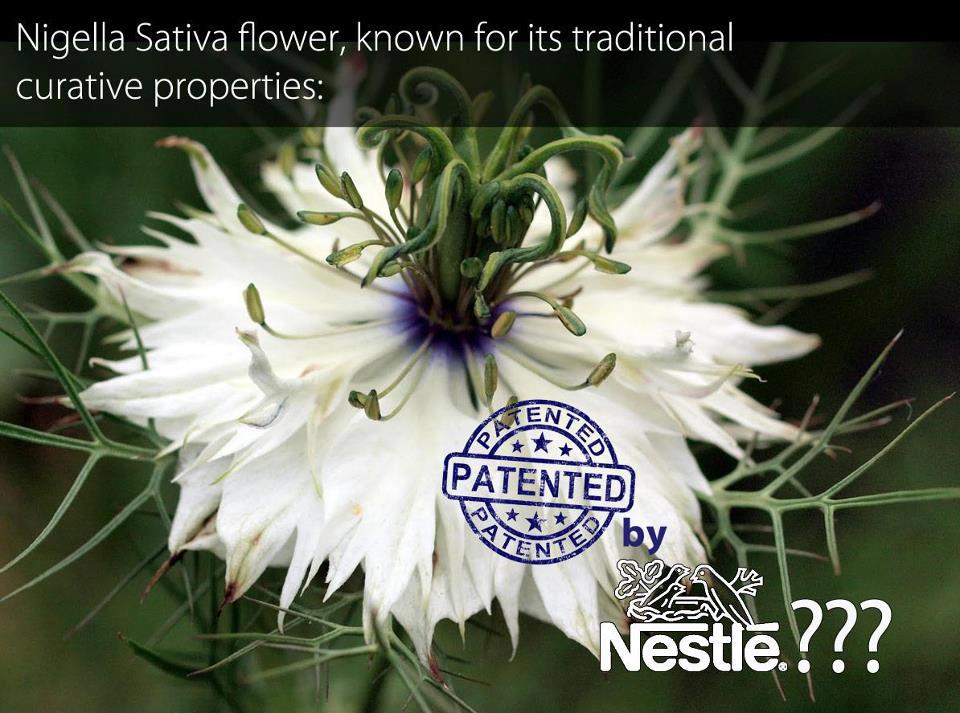Mon$anto vs. Mother Earth
-
Mmmmm, farmers! Yes, I agree they are a shrewd bunch when it come to looking for a bargain! I have done business with lots of them over the years and have found that they like to squeeze the last penny out of a deal. But I have always found them quite fair and honourable.
I do however feel that in general they put the welfare of the land (Mother Earth) before profits as they realise that she demands respect and slaps back when abused.
I don't know how much more farm productivity can be pushed. I somehow doubt that there is much more in it. I think we should be looking a ways of encouraging a sustainable World human population rather than pushing Mother Earth beyond what she can deliver in a sustainable way. Then again, thats another debate, one that we have broached here many times.
-
Got some time to learn?
Here is a course of lectures on Permaculture, the crux of this whole debate IMO.
Permaculture means ‘permanent culture,’ (or ‘permanent agriculture’) and …’is the conscious design and maintenance of cultivated ecosystems that have the diversity, stability, and resilience of a natural ecosystem.’ (Bill Mollison)
-
@unknownuser said:
the conscious design and maintenance of cultivated ecosystems that have the diversity, stability, and resilience of a natural ecosystem
I can't think of a better description of what Monsanto does.
...except they make improvements much faster than nature.
-
Sorry, but I can't see the saturation of soils with glyphosate fitting into that description.
-
words like "saturation" are really scarey.
Glyphosate does not bioaccumulate and breaks down rapidly in the environment.
Glyphosate has a United States Environmental Protection Agency (EPA) Toxicity Class of III (on a I to IV scale, where IV is least dangerous) for oral and inhalation exposure.
The EPA considers glyphosate to be noncarcinogenic and relatively low in toxicity.[46] The EPA considered a "worst case" dietary risk model of an individual eating a lifetime of food derived entirely from glyphosate-sprayed fields with residues at their maximum levels. This model indicated that no adverse health effects would be expected under such conditions.
If the EPA considers it low risk...you can probably drink it.
It isn't agent orange.
-
let's trust the nature!

-
Haha!
The birds know what they want!

If GMO offer no health benefits, then why do they even exist?
Money. Greed.
Having to test toxicity in the first place says to me they don't do you any good. If you don't use the toxins...there will be no toxicity!! So what if the toxicity coefficient is low....IT'S STILL A TOXIN!
Am I missing something? So what if GMO are more resilient to some diseases, with organic you lose some plants and you lose some money, big deal. It's how farming's been done for 1000s of years! Take it on the chin and move on.

-
Yes indeed, it look like the birds know whats good for them. Thanks Majid.
From what I can see, one of the main reasons the likes of Monsanto and other similar companies thrive, is simply because of the monoculture we have today. For as long as we enbrance this method of growing food there will be a requirement for pesticides and unnatural growth enhancers with their risks and ???????
Biodiversity is the best way to deliver food and at the same time maintain sustainability. Taking this down to a simple back graden level, here as some tips on how things should be done,
10 Fast Ways to Control Pests
http://www.organicgardening.com/learn-and-grow/10-fast-ways-control-pestsNow, if Monsanto could work on figuring out some way of scaling this method up in a 'natural' way I would not have a problem with them but I very much doubt they would even consider trying to do this as it goes against their real motives, profit at any arguable cost not sustainable growing. Fair enough! but I wish they would not try to hold a halo over their heads.
As regards the 'halo'! I read this on their site,
WHY DOES AGRICULTURE NEED TO BE IMPROVED
GROWING POPULATIONS,
GROWING CHALLENGES
http://www.monsanto.com/improvingagriculture/Pages/growing-populations-growing-challenges.aspxIts clap trap as far as I'm concerned. They should be honest and tag on 'GROWING PROFITS AT ANY COST' and not bother with the drivel. Monsanto looks to me be be looking forward to a 9Billion population in 2050 instead of getting involved in ways to see if its possible to have a sustainable World population!
The World is only capable of carrying a certain population of animals which include us humans. We are not really sure about this number but many informed neutral sources think we have already exceded this figure. This is the core problem!
Huge population increases over the past 120 years have and are throwing food production and other living support systems out of tilter with what Nature can deliver at a sustainable level. I think Mother Nature will in time strike back as she always has when certain species, for what ever reason, overtax and grab an unfair share of her resources.
-
prove the corn was either gmo or organic...what a ridiculous post.
-
My experience with Roundup tells me quite a different story. I was, many years ago, convinced by some farmer neighbours to spray a patch of thistle with Roundup.
It wasn't until the fifth year after spraying that anything would grow on that patch of ground. Finally in the 5th year some chickweed moved in.
This is the event that piqued my interest in what we are discussing. -
Dale, let me understand. You sprayed weed killer on a patch of ground and the weeds died and nothing grew there for five years because you didn't plant anything there. Finally some weeds grew on their own. OK
Too many details of the events are missing for me to draw any conclusions.
-
(Reuters)
Heavy use of the world’s most popular herbicide, Roundup, could be linked to a range of health problems and diseases, including Parkinson’s, infertility and cancers, according to a new study.
The peer-reviewed report, published last week in the scientific journal Entropy, said evidence indicates that residues of “glyphosate,” the chief ingredient in Roundup weed killer, which is sprayed over millions of acres of crops, has been found in food.
Those residues enhance the damaging effects of other food-borne chemical residues and toxins in the environment to disrupt normal body functions and induce disease, according to the report, authored by Stephanie Seneff, a research scientist at the Massachusetts Institute of Technology, and Anthony Samsel, a retired science consultant from Arthur D. Little, Inc. Samsel is a former private environmental government contractor as well as a member of the Union of Concerned Scientists.
“Negative impact on the body is insidious and manifests slowly over time as inflammation damages cellular systems throughout the body,” the study says.
We “have hit upon something very important that needs to be taken seriously and further investigated,” Seneff said.
Environmentalists, consumer groups and plant scientists from several countries have warned that heavy use of glyphosate is causing problems for plants, people and animals.
The EPA is conducting a standard registration review of glyphosate and has set a deadline of 2015 for determining if glyphosate use should be limited. The study is among many comments submitted to the agency.
Monsanto is the developer of both Roundup herbicide and a suite of crops that are genetically altered to withstand being sprayed with the Roundup weed killer.
These biotech crops, including corn, soybeans, canola and sugarbeets, are planted on millions of acres in the United States annually. Farmers like them because they can spray Roundup weed killer directly on the crops to kill weeds in the fields without harming the crops.
Roundup is also popularly used on lawns, gardens and golf courses.
Monsanto and other leading industry experts have said for years that glyphosate is proven safe, and has a less damaging impact on the environment than other commonly used chemicals.
Jerry Steiner, Monsanto’s executive vice president of sustainability, reiterated that in a recent interview when questioned about the study.
“We are very confident in the long track record that glyphosate has. It has been very, very extensively studied,” he said.
Of the more than two dozen top herbicides on the market, glyphosate is the most popular. In 2007, as much as 185 million pounds of glyphosate was used by U.S. farmers, double the amount used six years ago, according to Environmental Protection Agency (EPA) data.
-
Nigella sativa -- more commonly known as fennel flower -- has been used as a cure-all remedy for over a thousand years. It treats everything from vomiting to fevers to skin diseases, and has been widely available in impoverished communities across the Middle East and Asia.
But now Nestlé is claiming to own it, and filing patent claims around the world to try and take control over the natural cure of the fennel flower and turn it into a costly private drug.

-
Both articles are good.
Nestles doesn't have a prayer in patenting that.The glyphosate article indicates the study is rather inconclusive.
-
Mmmmm. its the mind set of these companies that worries me. Their wallets are fat and I imagine persuasive!
-
That must cause some cognitive dissonance when you consider some of the good things they do.
I guess it's never enough. -
Well, I suppose 'Business is Business' and commercial companies will do what they have been set up to do! I'm happy enough that there are plenty of 'watchdogs' that will bring to light any possibly questionable proposals / actions.
-
One 'broader' issue not yet mentioned is that it only needs one or two nitwits in the process-chain to do something unexpectedly idiotic [people can always be guaranteed to be more stupid than you might ever have expected!] OR for some rare and unanticipated natural event to occur etc... Then you are screwed.
The nuclear industry is strictly regulated worldwide - but.... we still had Chernobyl, Three Mile Island, Seascale, Fukashima...
The EU food-supply is probably the most strictly regulated in the world - but... anyone like a horse-meat burger, kosher/halal burger with added pork etc ?
Fracking has to be safe, doesn't it? - after all we get lots of low cost energy through it... there might we toxic-gas emissions, ground-water pollution, minor earthquakes etc... but...
FEMA will help out in disasters - but see New Orleans and then the recent East coast storm...
Homeland Security, FBI, CIA, NIS, SS, 'the police' and a myriad of other agencies, continue to erode everyone's constitutional rights whilst they say they are trying to protect them, but the bombs still go off and lunatics still mow down the innocents - no change there then.So... do we really trust that 'our' best interests are served by:
-
The 'commercial companies' [that includes the manufacturers AND the farmers - everyone in the process that stops with 'us'], whose prime motive is profit.
-
The 'politicians', who have forgotten what their job actually is [they now serve themselves not their country].
-
The 'lobbyists', who on all sides are biased in favor of their own limited view points [that includes pro-GM and anti-GM groups].
-
The 'scientists' who come up with these ideas, devoid of moral compunction.
-
The 'designers', 'technologists', 'engineers' etc who realize the scientists' concepts into day-to-day objects for us to use/fret-over...
-
The 'government agencies' who seem increasingly unaccountable to their 'bosses' [politicians/us]...
-
.None of the above..

-
-
OK then it's settled...people suck!
seriously, well said TIG. Each move must be weighed, a cost benefit analysis done.
but Audentes fortuna iuvat
-
how's this for a coinkydink
Monsanto buys Beeologics, working to save pollinating bees.
http://current.com/1e85ikc
Advertisement







